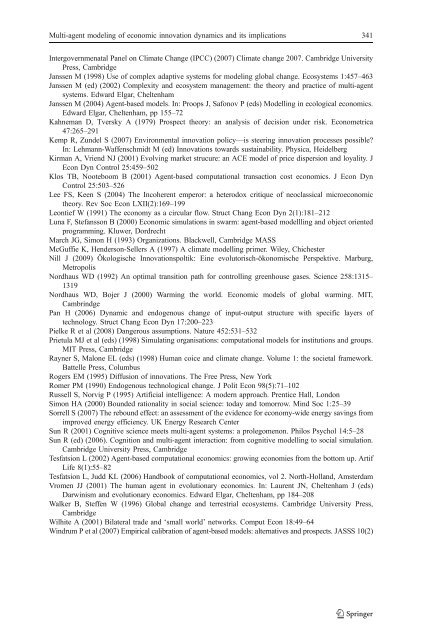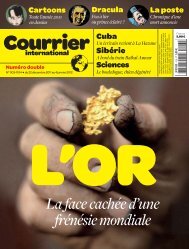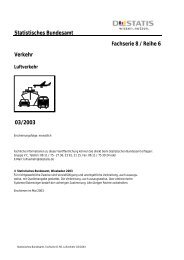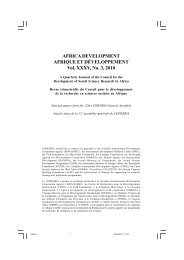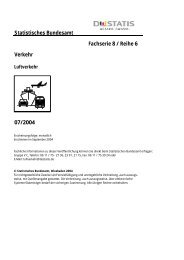The international economics of resources and resource ... - Index of
The international economics of resources and resource ... - Index of
The international economics of resources and resource ... - Index of
You also want an ePaper? Increase the reach of your titles
YUMPU automatically turns print PDFs into web optimized ePapers that Google loves.
Multi-agent modeling <strong>of</strong> economic innovation dynamics <strong>and</strong> its implications 341<br />
Intergovernmenatal Panel on Climate Change (IPCC) (2007) Climate change 2007. Cambridge University<br />
Press, Cambridge<br />
Janssen M (1998) Use <strong>of</strong> complex adaptive systems for modeling global change. Ecosystems 1:457–463<br />
Janssen M (ed) (2002) Complexity <strong>and</strong> ecosystem management: the theory <strong>and</strong> practice <strong>of</strong> multi-agent<br />
systems. Edward Elgar, Cheltenham<br />
Janssen M (2004) Agent-based models. In: Proops J, Safonov P (eds) Modelling in ecological <strong>economics</strong>.<br />
Edward Elgar, Cheltenham, pp 155–72<br />
Kahneman D, Tversky A (1979) Prospect theory: an analysis <strong>of</strong> decision under risk. Econometrica<br />
47:265–291<br />
Kemp R, Zundel S (2007) Environmental innovation policy—is steering innovation processes possible?<br />
In: Lehmann-Waffenschmidt M (ed) Innovations towards sustainability. Physica, Heidelberg<br />
Kirman A, Vriend NJ (2001) Evolving market strucure: an ACE model <strong>of</strong> price dispersion <strong>and</strong> loyality. J<br />
Econ Dyn Control 25:459–502<br />
Klos TB, Nooteboom B (2001) Agent-based computational transaction cost <strong>economics</strong>. J Econ Dyn<br />
Control 25:503–526<br />
Lee FS, Keen S (2004) <strong>The</strong> Incoherent emperor: a heterodox critique <strong>of</strong> neoclassical microeconomic<br />
theory. Rev Soc Econ LXII(2):169–199<br />
Leontief W (1991) <strong>The</strong> economy as a circular flow. Struct Chang Econ Dyn 2(1):181–212<br />
Luna F, Stefansson B (2000) Economic simulations in swarm: agent-based modellling <strong>and</strong> object oriented<br />
programming. Kluwer, Dordrecht<br />
March JG, Simon H (1993) Organizations. Blackwell, Cambridge MASS<br />
McGuffie K, Henderson-Sellers A (1997) A climate modelling primer. Wiley, Chichester<br />
Nill J (2009) Ökologische Innovationspoltik: Eine evolutorisch-ökonomische Perspektive. Marburg,<br />
Metropolis<br />
Nordhaus WD (1992) An optimal transition path for controlling greenhouse gases. Science 258:1315–<br />
1319<br />
Nordhaus WD, Bojer J (2000) Warming the world. Economic models <strong>of</strong> global warming. MIT,<br />
Cambrindge<br />
Pan H (2006) Dynamic <strong>and</strong> endogenous change <strong>of</strong> input-output structure with specific layers <strong>of</strong><br />
technology. Struct Chang Econ Dyn 17:200–223<br />
Pielke R et al (2008) Dangerous assumptions. Nature 452:531–532<br />
Prietula MJ et al (eds) (1998) Simulating organisations: computational models for institutions <strong>and</strong> groups.<br />
MIT Press, Cambridge<br />
Rayner S, Malone EL (eds) (1998) Human coice <strong>and</strong> climate change. Volume 1: the societal framework.<br />
Battelle Press, Columbus<br />
Rogers EM (1995) Diffusion <strong>of</strong> innovations. <strong>The</strong> Free Press, New York<br />
Romer PM (1990) Endogenous technological change. J Polit Econ 98(5):71–102<br />
Russell S, Norvig P (1995) Artificial intelligence: A modern approach. Prentice Hall, London<br />
Simon HA (2000) Bounded rationality in social science: today <strong>and</strong> tomorrow. Mind Soc 1:25–39<br />
Sorrell S (2007) <strong>The</strong> rebound effect: an assessment <strong>of</strong> the evidence for economy-wide energy savings from<br />
improved energy efficiency. UK Energy Research Center<br />
Sun R (2001) Cognitive science meets multi-agent systems: a prolegomenon. Philos Psychol 14:5–28<br />
Sun R (ed) (2006). Cognition <strong>and</strong> multi-agent interaction: from cognitive modelling to social simulation.<br />
Cambridge University Press, Cambridge<br />
Tesfatsion L (2002) Agent-based computational <strong>economics</strong>: growing economies from the bottom up. Artif<br />
Life 8(1):55–82<br />
Tesfatsion L, Judd KL (2006) H<strong>and</strong>book <strong>of</strong> computational <strong>economics</strong>, vol 2. North-Holl<strong>and</strong>, Amsterdam<br />
Vromen JJ (2001) <strong>The</strong> human agent in evolutionary <strong>economics</strong>. In: Laurent JN, Cheltenham J (eds)<br />
Darwinism <strong>and</strong> evolutionary <strong>economics</strong>. Edward Elgar, Cheltenham, pp 184–208<br />
Walker B, Steffen W (1996) Global change <strong>and</strong> terrestrial ecosystems. Cambridge University Press,<br />
Cambridge<br />
Wilhite A (2001) Bilateral trade <strong>and</strong> ‘small world’ networks. Comput Econ 18:49–64<br />
Windrum P et al (2007) Empirical calibration <strong>of</strong> agent-based models: alternatives <strong>and</strong> prospects. JASSS 10(2)


